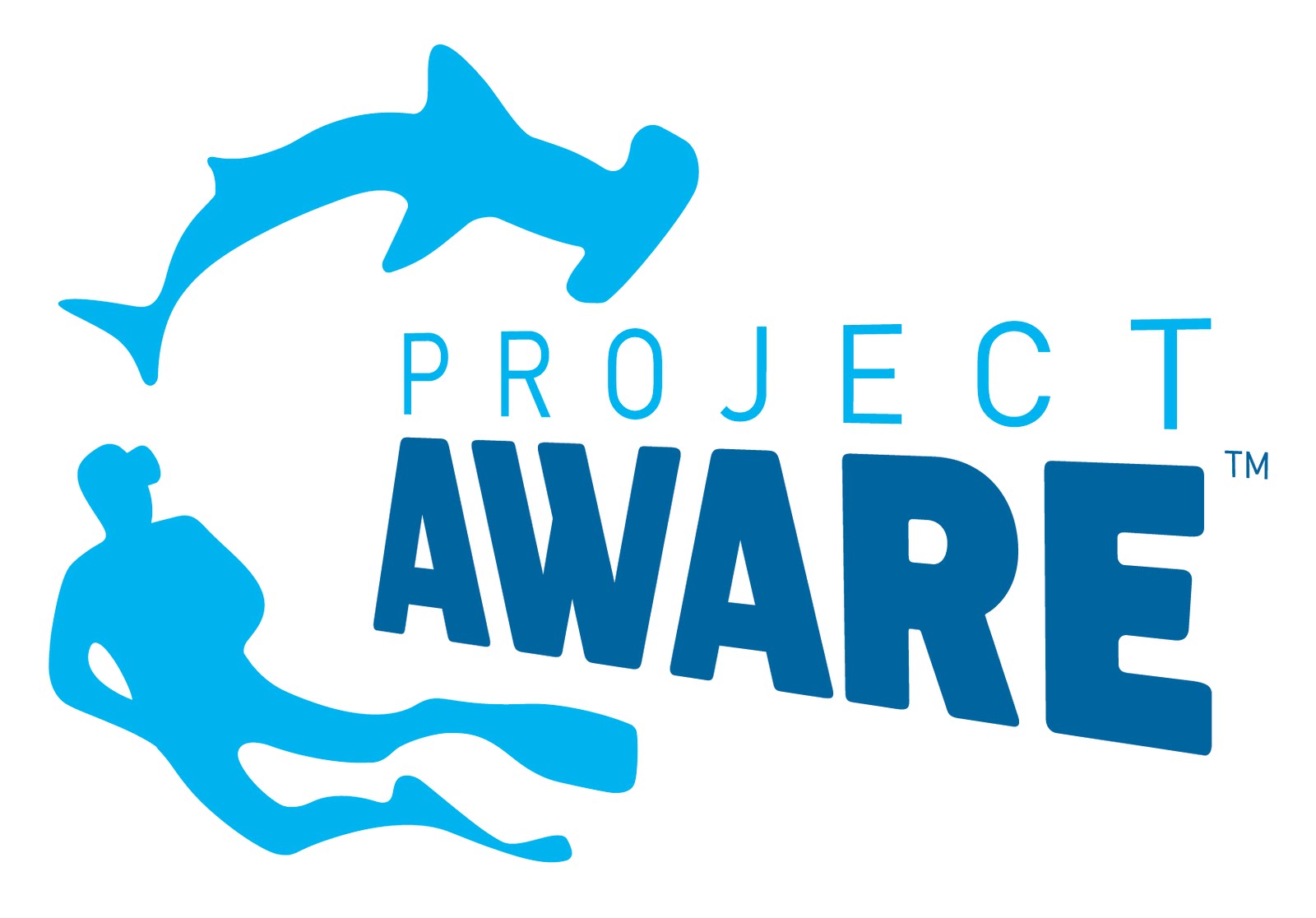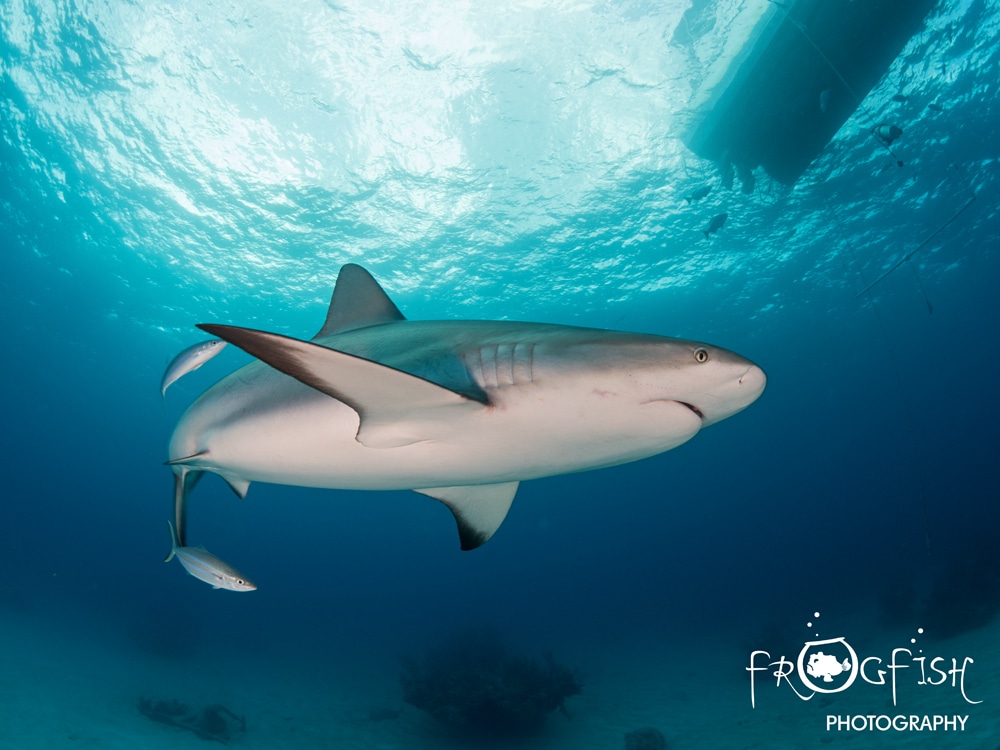Marine Life & Conservation Blogs
5 Facts People Who Fear Sharks Should Know

 Sharks need you. Don’t fear sharks! Fear an ocean without them… Domino Albert, Project AWARE® Associate Director, Global Communications, kindly lets us share her latest blog…
Sharks need you. Don’t fear sharks! Fear an ocean without them… Domino Albert, Project AWARE® Associate Director, Global Communications, kindly lets us share her latest blog…
We’ve come a long way since the horror-filled days of the 70s Jaws film that has promoted widespread fear about, not just great whites, but sharks of any kind. But thanks to new science, advocacy and media tools – conservationists are busting long-standing shark myths and securing much-needed protections for some of the world’s most vulnerable shark species.
1. Sharks – Predators or Preys?
Think twice – Humans should be the ocean’s caretakers, and yet could actually be considered the real “monsters of the deep”. In too many places, we’re emptying the ocean of sharks. According to the results of the first-ever global study of extinction risk conducted by the IUCN Shark Specialist Group, 25% of the world’s sharks and rays are threatened with extinction.
2. There are 1000+ known shark and ray species globally
Some eat plankton, others love sea lions. Humans are not part of a shark’s natural diet but tens of millions of sharks are killed each year for their meat, fins, liver, and other products. As many fisheries are unregulated, catches are significantly under-reported. Scalloped Hammerheads are classified by IUCN as Globally Endangered on the Red List, making them amongst the most threatened of all highly migratory sharks. While not out of the woods, White Sharks are amongst the world’s most protected sharks.
Their closest cousins however, aren’t faring so well: wide-ranging mako sharks are heavily fished around the world without any international or even EU limits, while porbeagle sharks can still be landed in the US and Canada despite needing many decades to recover from overfishing.
3. Fishing, trade, and market controls are lacking
Demand for shark fins is driving the wasteful practice of finning while interest in shark and ray meat is growing in many places. Largely uncontrolled fishing and bycatch are driving many shark and ray populations to the brink of collapse. It’s up to us to use our power as citizens and consumers. Urge your policymakers to promote shark and ray safeguards, and don’t open your wallet to shark and ray products unless you’re sure they’re sustainable.

4. Diversity is key. There’s no single silver bullet for shark conservation
Different regions have different issues, resources, and approaches. It requires a strong portfolio of science-based and/or precautionary catch limits, effective shark finning bans, bycatch mitigation, area protections, trade measures, and consumer awareness at all levels – international, regional and local – to safeguard these diverse species. That said, even small steps can help. Donating to shark conservation goes a long way towards protecting the most vulnerable shark species.
5. Respect your elders
In 2016, scientists estimated that Greenland sharks are incredibly long-lived, reaching sexual maturity at ~150 years of age and living 400 years or more. This finding and inferences about the species’ vulnerability led to widespread calls for conservation action. They were heavily fished in the first half of the 20th century for their liver oil. Today, they are taken primarily as incidental catch in a variety of fisheries, and also targeted by vessels from Greenland and Iceland to supply the demand for dried and fermented meat.
Divers are some of sharks and rays’ closest and most influential allies. Together, we are creating a powerful, collective voice to influence change. With your support, we’ve secured some amazing victories for our underwater friends. But we’re far from done. Join the movement and support shark saving strategies for the future.
Sharks need you. Don’t fear sharks! Fear an ocean without them… #HealthySharksHealthyOcean
Find out more at www.projectaware.org.
Blogs
Saba’s Plan for a Coral Comeback

Saba has an exciting new initiative to restore its coral reefs. This new project, running from 2024 to 2026, will focus on reviving key species in the island’s underwater ecosystems. With a collaborative team from the Saba Conservation Foundation (SCF) and Van Hall Larenstein (VHL) University of Applied Sciences, the project aims to restore both corals as well as sea urchins.
This initiative is centered around coral restoration, specifically reviving two essential coral species—staghorn coral (Acropora cervicornis) and elkhorn coral (Acropora palmata). By mapping parent colonies and using a technique known as coral gardening, SCF will create and maintain coral nurseries. These corals will eventually be outplanted at key reef sites around Saba to not only expand the number of coral colonies, but also provide essential fish habitat. The project focusses on installing coral nurseries, training staff with the newest techniques and starting with the restoration of key reef sites.

Reef Cleaners to the Rescue
It’s not just corals getting a makeover—this project also shines a spotlight on the essential role of grazers, particularly sea urchins. VHL is leading the charge on cultivating and restocking two key sea urchin species, West Indian sea egg (Tripneustes) and long-spined sea urchin (Diadema), known for their ability to keep algae in check. By removing algae, which are important competitors of corals, they help the coral to thrive. By restoring these “reef cleaners,” Saba’s project will give corals the breathing room they need to grow, setting the stage for a healthier, more balanced marine ecosystem.
From Tiny Urchins to Big Goals
The project will be funded as part of the Dutch Government’s Nature and Environment Policy Plan (NEPP) 2020-2030 for the Caribbean Netherlands, a comprehensive initiative aimed at conserving and restoring the unique natural environments of the Dutch Caribbean islands, including Saba, St. Eustatius, and Bonaire. This project is aiming for big milestones: build and maintaining coral nurseries, the expansion of urchin cultivation facilities, and the creation of a dedicated research center. By 2026, the project hopes to ramp up coral and grazer restoration, with the ultimate goal of extending these efforts across the Dutch Caribbean. By linking local initiatives to broader regional goals, Saba’s restoration project promises to leave a lasting impact on both the environment and the community.
Find out more about the DCNA at dcnanature.org.
Blogs
Reef-World marks two decades of marine conservation: strengthening impact amid coral reef threats

Empowering ocean stakeholders to tackle future challenges and ensure the survival of coral reefs and humanity
2024 marks the 20th Anniversary of The Reef-World Foundation’s tireless efforts for global coral reef conservation. The UK charity is the international coordinator of the UN Environment Programme’s Green Fins initiative, known as the leading voice in sustainable marine tourism. Today, Reef-World released its 2023-2024 Impact Report outlining a year of substantive growth and impact in its marine conservation programmes.

Impact Report Highlights:
- Impressive improvements in environmental behaviours to protect coral reefs by the marine tourism industry as the global participation of Green Fins increases.
- Continued capacity building for government and NGO staff to effectively manage marine tourism activities in Asia, Caribbean and Red Sea regions.
- For the first time in Green Fins’ 20-year history, tourism operators have achieved ‘Best Environmental Performer’ status by demonstrating the lowest possible environmental impact in their environmental assessments. In 2024, three dive operators achieved this challenging milestone.
- Significant increases in global participation of Reef-World’s innovative digital conservation tools.
- 138 Green Fins dive operator members achieved the strict threshold for PADI Eco Center recognition.
- Developed four new educational materials and translated two into 16 languages to support the marine tourism industry in achieving sustainability targets.
- Establishing a new Reef-World Development strategy and recruiting new roles – Development and Programmes Managers.
- Reef-World’s board welcomes new Chair and Trustees strengthening organisational leadership.

Reef-World started as a one-person mission to inspire and empower communities to act in conserving and sustainably developing coral reefs and related ecosystems. Today, the team of 12 continues to meet this mission by inspiring and empowering the global marine tourism community to be exemplary sustainability leaders by using the Green Fins guidelines and tools to simultaneously use and protect the world’s precious reefs.
In April 2024, the fourth global coral reef bleaching event was confirmed. Reef-World’s work has never been more urgent as the marine environment, and the benefits they provide humanity, continue to be eroded by global threats. The reduction of local threats, like those from the marine tourism industry, is an essential step to ensuring a future where coral reefs survive and continue to support the millions of people who depend on their ecosystem benefits. Reef-World’s work buys time for coral reefs and related ecosystems to be resilient to the impacts of global threats.
“Right now our corals are facing the greatest fight of their existence as the terrifying predictions of the steps towards their complete extinction are starting to come true. But all is not lost, reefs are resilient and they have existed on this planet for millions of years. We must take action now, to buy time for reefs by reducing threats facing them and allowing them to react and adjust to the changing environment they need to survive in.” – Chloe Harvey, Executive Director
Looking Forwards:
Like coral reefs, the Reef-World team needs to be resilient in the face of the complex challenges of the conservation sector. Reef-World has invested significantly in developing a Culture of Care to ensure the well-being of its team on a daily basis, continuing to be an exemplary employer to enable its team to best achieve the mission for coral reef conservation.
With the foundations of a Culture of Care and organisational development laid, Reef-World is emerging from the end of a natural organisation life cycle, that brings the challenges of growth and scale, stronger than ever. With a new strategy in place to generate much needed resources, Reef-World is excited for the opportunities to leap forward, continue to scale our impact and lean into new innovations and untapped opportunities for marine conservation.
We continually strive to become a forward-thinking organisation that delivers on our goals and commitments to our stakeholders with fresh approaches and not being afraid of steering away from a “normal approach.” This approach is not only applied to our programmes of work but also internally and carries over to our Culture of Care for our team.” — JJ Harvey, Operations Director

The Reef-World Foundation is immensely grateful for the continued support of its grant funders: UN Environment Programme, IUCN’s Blue Natural Capital Financing Facility, Adventure Travel Conservation Fund, PADI Aware Foundation, and World Nomads Footprints Program.
Reef-World would also like to express its gratitude to international partners whose vital support has resulted in significant tangible benefits for our work and mission: PADI; Professional SCUBA Schools International (PSS); Explorer Ventures; 1% for the Planet; ZuBlu; Snorkel Venture, GSTC; Dive O’Clock; Seven Dragons; DiveAssure and Eco Beach, without whom these achievements would not be possible.
The full 2023–2024 Annual Impact Report is available on Reef-World’s website.
-

 News1 month ago
News1 month agoIconic SS United States to become the World’s Largest Artificial Reef
-

 Blogs3 months ago
Blogs3 months agoNovoScuba’s Game-Changing Approach for Dive Store Owners: WE PAY YOU!
-

 News2 months ago
News2 months agoBook Review – 52 Assignments: Underwater Photography
-

 Gear News2 months ago
Gear News2 months agoDYNAMICNORD – New German diving brand enters the British market
-

 News2 months ago
News2 months agoExploring Cenote El Pit: A Diver’s Dream
-

 Gear News2 months ago
Gear News2 months agoTry BARE drysuits (and maybe even win one!) this Friday with Sea & Sea at North West Dive Fest
-

 News3 months ago
News3 months agoComing Soon – 52 Assignments
-

 Marine Life & Conservation2 months ago
Marine Life & Conservation2 months agoBook Review: Coral Triangle Cameos













